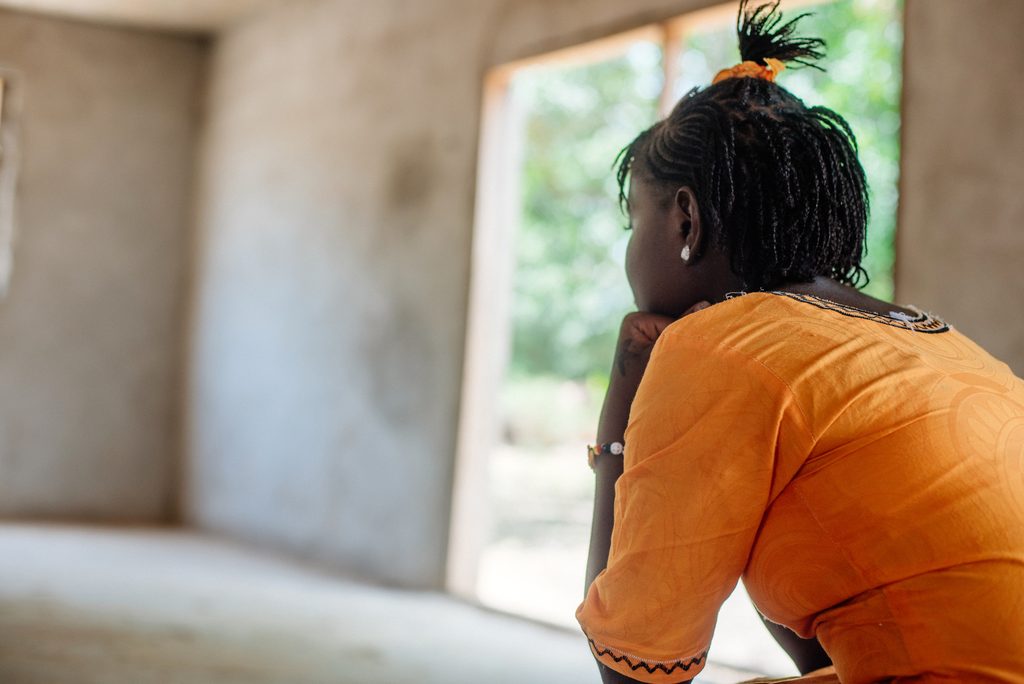Girls in Senegal use hip hop to push for political change
Coumba and Maguette write music that tackles the issues girls face in Senegal.
Gender-based violence (GBV) is any harmful act directed at a person because of their gender. It includes physical, sexual, emotional, and economic abuse, and is rooted in gender inequality, discrimination, and power imbalance. GBV is a serious violation of human rights and a barrier to gender equality.
Girls, especially adolescent girls and young women, are disproportionately affected. They face specific risks such as child marriage, sexual exploitation, trafficking, and online abuse. These forms of violence are not only deeply damaging, they also prevent girls from enjoying their rights and reaching their full potential.
Plan International works to prevent and respond to GBV by challenging harmful gender norms, supporting survivors, and promoting the rights and agency of girls in all their diversity.
While girls, adolescent girls, and young women are disproportionately affected by gender-based violence due to systemic gender inequality, we also recognise that boys, and children with diverse gender identities also experience gender-based violence.
Plan International works to ensure that all children, adolescents and youth are protected, while maintaining a strong focus on the distinct risks and rights of girls, adolescent girls and young women. Boys and young men also have a critical role to play as allies in challenging harmful gender norms and promoting gender equality.
We adopt an approach which aims to address GBV in all its forms and manifestations, including work to combat intimate partner violence and violence against women but also specific harmful practices such as child, early and forced marriage; female genital mutilation (FGM); forced pregnancy in girls and human trafficking.
We are strengthening our work on new and emerging forms of violence such as technology facilitated gender-based violence and online child sexual exploitation and abuse.

We advocate for girls and young women to be at the centre of efforts to eradicate GBV as part of a commitment to a gender-transformative approach. Girls and young women are one of the groups most at risk of gender-based violence and need specific attention from the international community to ensure their right to grow up free from violence is fulfilled.
We oppose patriarchal systems that seek to control the lives and sexuality of girls and women, that give lower status to girls and women and are used to justify violence against them. We recognise that girls and women have the right to bodily autonomy and to control their own sexuality. To end gender-based violence, we believe that these prevailing systems of power must be challenged and changed.
Plan International opposes patriarchal systems that seek to control the lives and sexuality of girls and women, that give lower status to girls and women and are used to justify violence against them.
The strength to say no: one girl’s journey to resisting forced marriage and female genital mutilation (FGM) in Tanzania.
Some of our most widespread protection from violence programmes have ending against women and girls at their core.
This includes specific projects on gender-based violence, violence against women, and intimate partner violence, and programmes that work holistically with children, young people, families, communities, leaders, service providers and local and national systems to prevent and reduce violence with a gender-transformative approach.
Meet the young Dominican woman advocating for girls’ rights, urging the president to help prevent early and forced marriage and teen pregnancy.
To end gender-based violence, the prevailing systems of power must be challenged and changed.
Examples of our work include Safer Cities for Girls, which empowers girls to speak up about the issues they face in urban areas and emboldens them to speak up for change.
Champions of Change is our global youth engagement programme which encourages boys and young men to identify and challenge harmful, negative masculinities that perpetuate discrimination and violence, whilst empowering girls to defend their rights.